Zhuosheng Liu
AIGVE-Tool: AI-Generated Video Evaluation Toolkit with Multifaceted Benchmark
Mar 18, 2025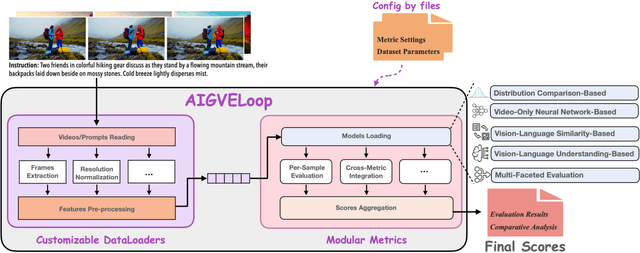

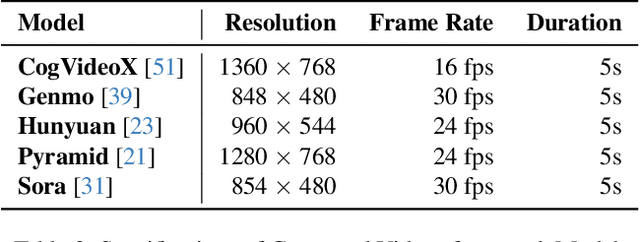
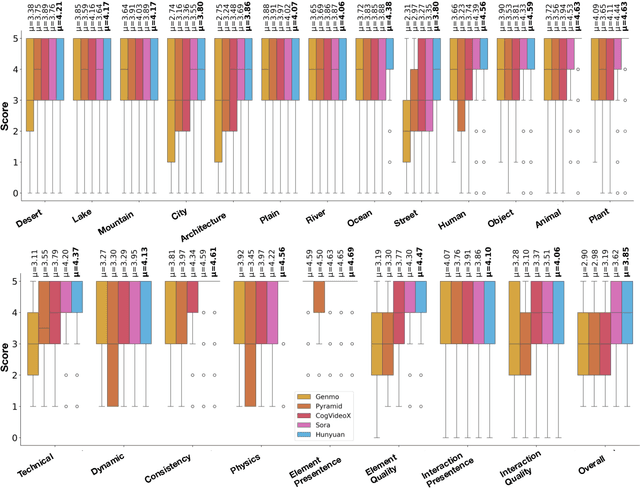
Abstract:The rapid advancement in AI-generated video synthesis has led to a growth demand for standardized and effective evaluation metrics. Existing metrics lack a unified framework for systematically categorizing methodologies, limiting a holistic understanding of the evaluation landscape. Additionally, fragmented implementations and the absence of standardized interfaces lead to redundant processing overhead. Furthermore, many prior approaches are constrained by dataset-specific dependencies, limiting their applicability across diverse video domains. To address these challenges, we introduce AIGVE-Tool (AI-Generated Video Evaluation Toolkit), a unified framework that provides a structured and extensible evaluation pipeline for a comprehensive AI-generated video evaluation. Organized within a novel five-category taxonomy, AIGVE-Tool integrates multiple evaluation methodologies while allowing flexible customization through a modular configuration system. Additionally, we propose AIGVE-Bench, a large-scale benchmark dataset created with five SOTA video generation models based on hand-crafted instructions and prompts. This dataset systematically evaluates various video generation models across nine critical quality dimensions. Extensive experiments demonstrate the effectiveness of AIGVE-Tool in providing standardized and reliable evaluation results, highlighting specific strengths and limitations of current models and facilitating the advancements of next-generation AI-generated video techniques.
A Survey of AI-Generated Video Evaluation
Oct 24, 2024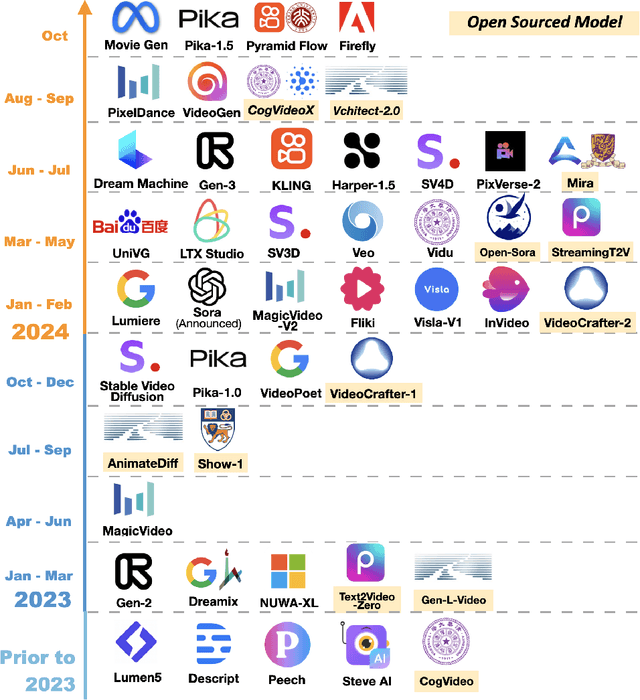
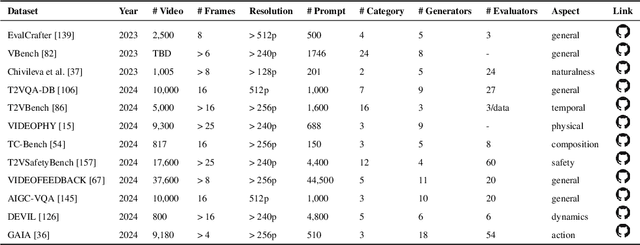
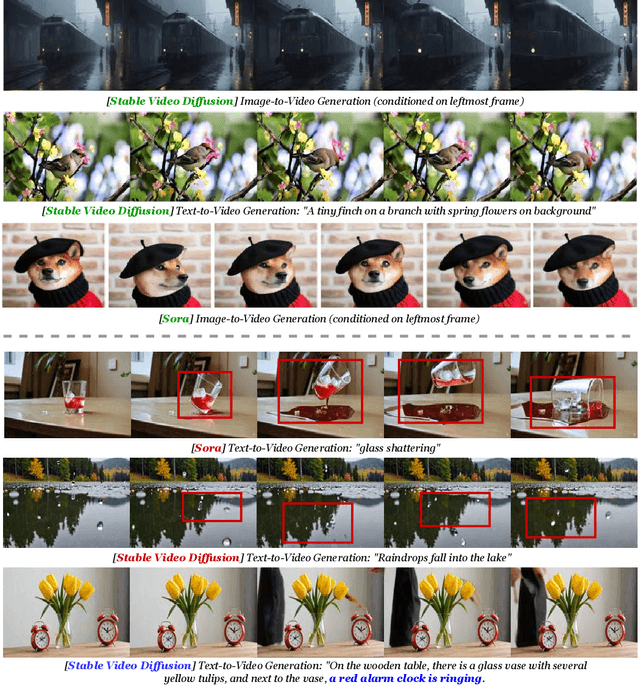
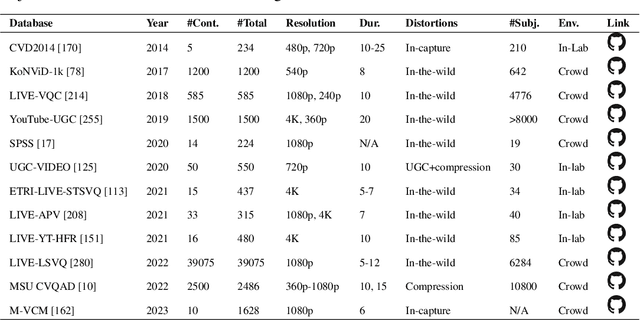
Abstract:The growing capabilities of AI in generating video content have brought forward significant challenges in effectively evaluating these videos. Unlike static images or text, video content involves complex spatial and temporal dynamics which may require a more comprehensive and systematic evaluation of its contents in aspects like video presentation quality, semantic information delivery, alignment with human intentions, and the virtual-reality consistency with our physical world. This survey identifies the emerging field of AI-Generated Video Evaluation (AIGVE), highlighting the importance of assessing how well AI-generated videos align with human perception and meet specific instructions. We provide a structured analysis of existing methodologies that could be potentially used to evaluate AI-generated videos. By outlining the strengths and gaps in current approaches, we advocate for the development of more robust and nuanced evaluation frameworks that can handle the complexities of video content, which include not only the conventional metric-based evaluations, but also the current human-involved evaluations, and the future model-centered evaluations. This survey aims to establish a foundational knowledge base for both researchers from academia and practitioners from the industry, facilitating the future advancement of evaluation methods for AI-generated video content.
 Add to Chrome
Add to Chrome Add to Firefox
Add to Firefox Add to Edge
Add to Edge